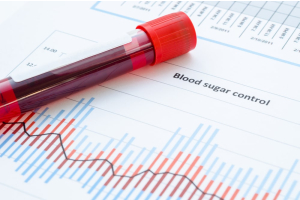How Stress Affects Your Body: Understanding the Physiological Impact

As we all live in a world where working and worrying constantly is normal, stress and anxiety have become common companions for many of us. From hectic work schedules to personal challenges, stress can manifest in various forms and impact our mental as well as physical health.
Hence, this Stress Awareness Month, take some time to understand how stress affects your body and what you can do to reduce its effects. At Pearl Chemist Group, we recognise the importance of addressing stress and anxiety.
To help you manage your stress better, we offer stress & anxiety supplements to support your journey towards better mental health.
What Causes Stress?
Stress is a natural response to mental or emotional pressure. It can stem from various sources, ranging from work-related deadlines to personal relationships. Sometimes, stress may arise without an obvious cause, leaving us feeling overwhelmed and out of control.
When we experience stress, our bodies release hormones like adrenaline and cortisol, preparing us for a fight-or-flight response. While this response can be beneficial in certain situations, prolonged exposure to stress can lead to adverse physical and mental health effects.
How Does Stress Affect Your Body?
Stress is more than just a mental or emotional burden, it can have profound effects on our physical health as well. When we’re stressed, our bodies react in various ways, each of which can impact our overall well-being.
From increased heart rate to weakened immune system, the physiological consequences of stress are wide-ranging and significant. Let's find out how stress affects our bodies and the potential health implications it can bring.
1. Increased Heart Rate- One of the immediate physiological effects of stress is an elevated heart rate. This occurs as a result of the release of adrenaline, which prepares the body to respond to perceived threats.
2. Elevated Blood Pressure- Chronic stress can lead to consistently high blood pressure levels. This increases the risk of cardiovascular diseases such as hypertension and heart attacks.
3. Digestive Issues- Stress can disrupt the normal functioning of the digestive system. This leads to symptoms such as indigestion, bloating, and even irritable bowel syndrome (IBS).
4. Weakened Immune System- Prolonged stress weakens the immune system, making us more susceptible to infections and illnesses. This can result in frequent colds, flu, and other health complications.
5. Mental Health Concerns- Stress not only affects our physical health but also takes a toll on our mental well-being. It can contribute to anxiety disorders, depression, and other psychological conditions if left unmanaged.
How Do You Manage Stress?
While there are various coping mechanisms, finding what works best for you is essential. Incorporating relaxation techniques such as deep breathing exercises, mindfulness meditation, and regular physical activity can help relieve stress. Additionally, seeking support from friends, family, or a professional counsellor can provide valuable assistance in managing stressful situations.
Nature's Bounty Bedtime Balance (5HTP with Lavender) 60 is one of the options to consider when looking for natural ways to manage stress. Formulated with 5-HTP and lavender extract, this supplement promotes relaxation and supports a calm mood.
Manage Stress with Pearl Chemist Group
It is important to understand the physiological impact of stress to maintain overall well-being. This Stress Awareness Month, let's prioritise self-care and support each other in facing life's challenges.
Remember, at Pearl Chemist Group, we're here to help you with your mental health. With the right vitamins & supplements for stress and lifestyle modifications, you can reduce your stress levels significantly.
Shop with us online or visit your nearest Pearl Chemist Branch to take a step towards better mental well-being.






